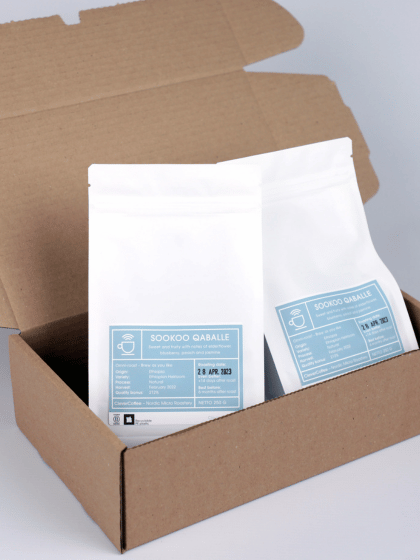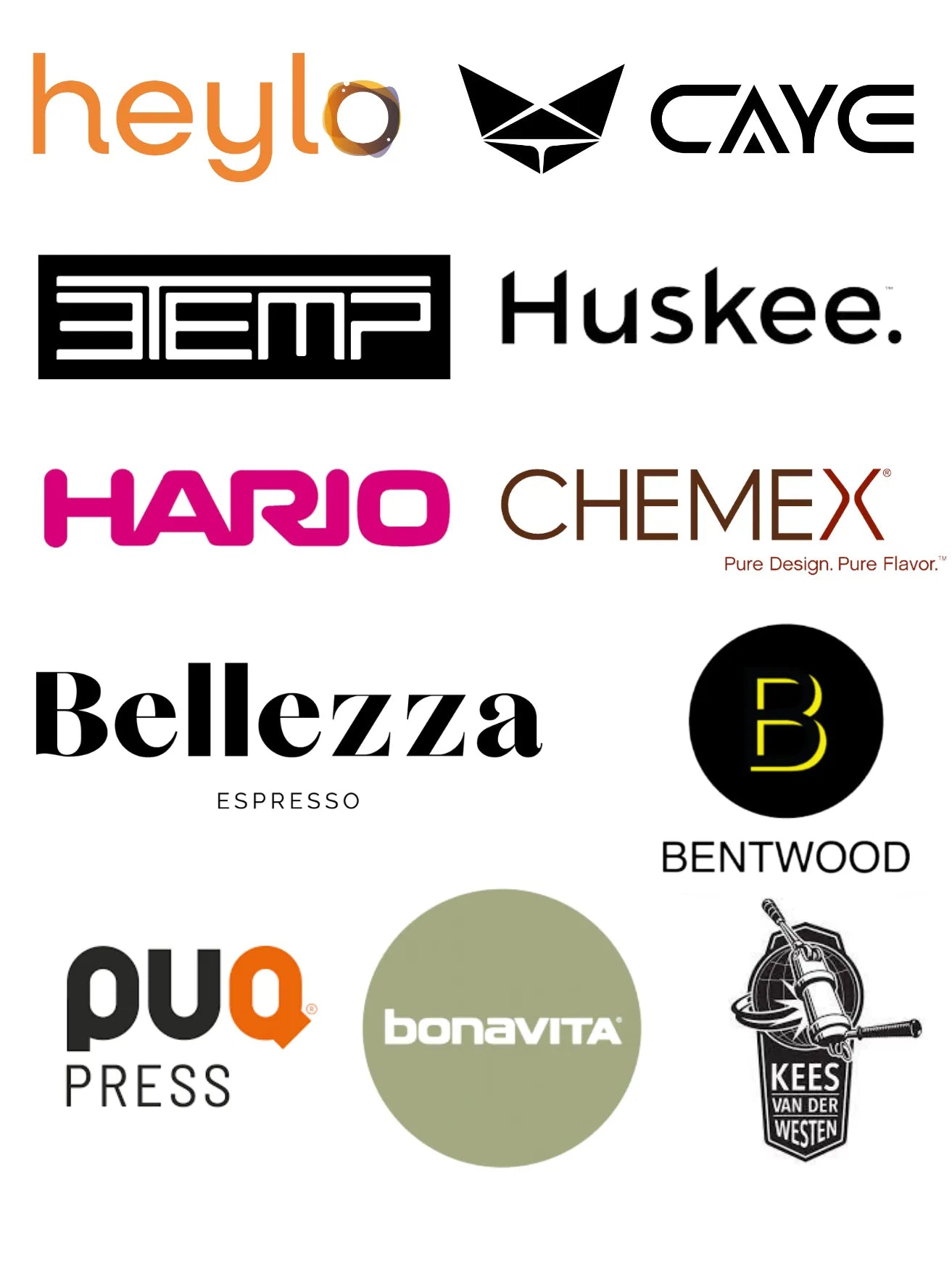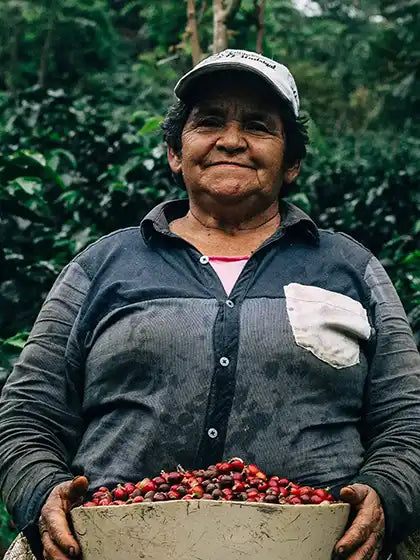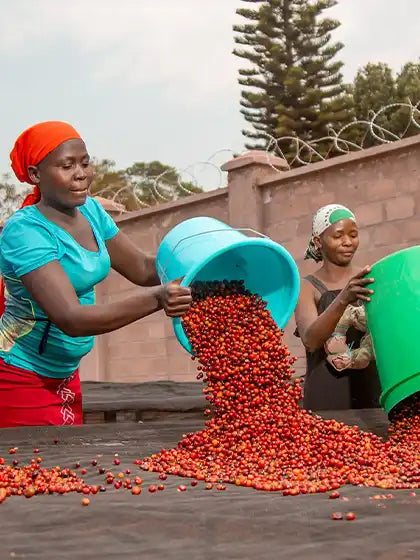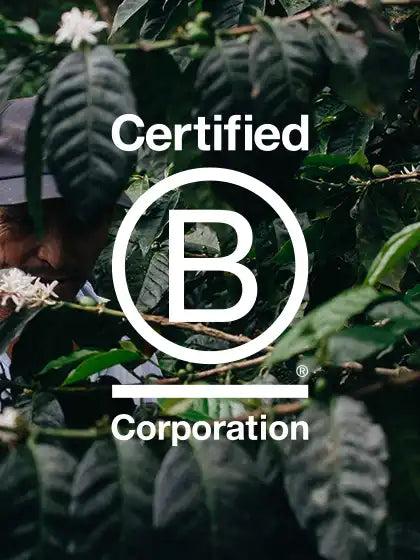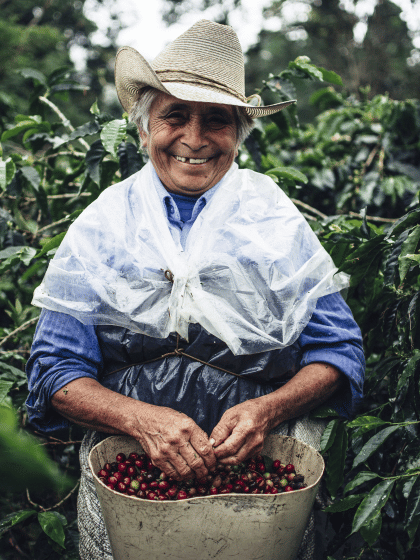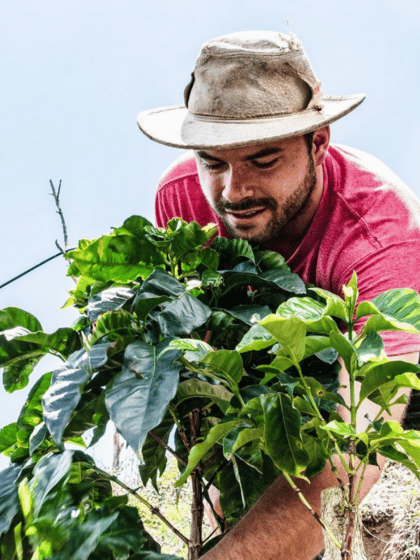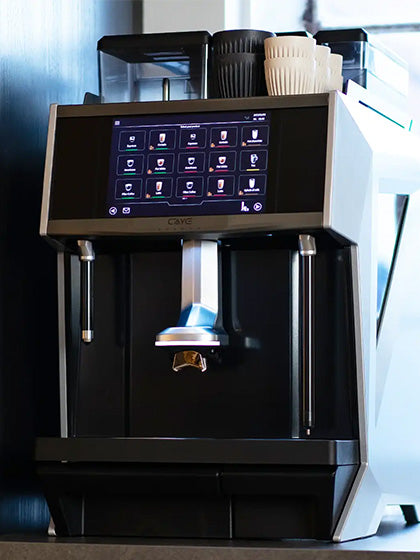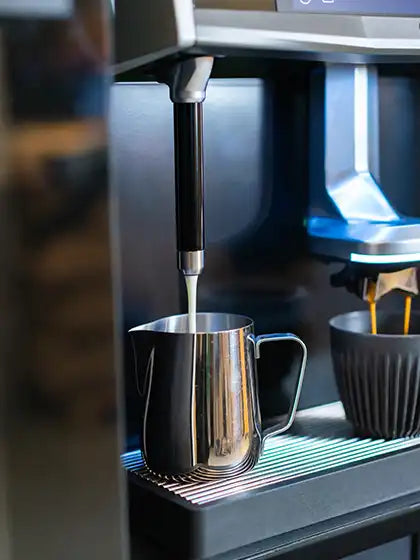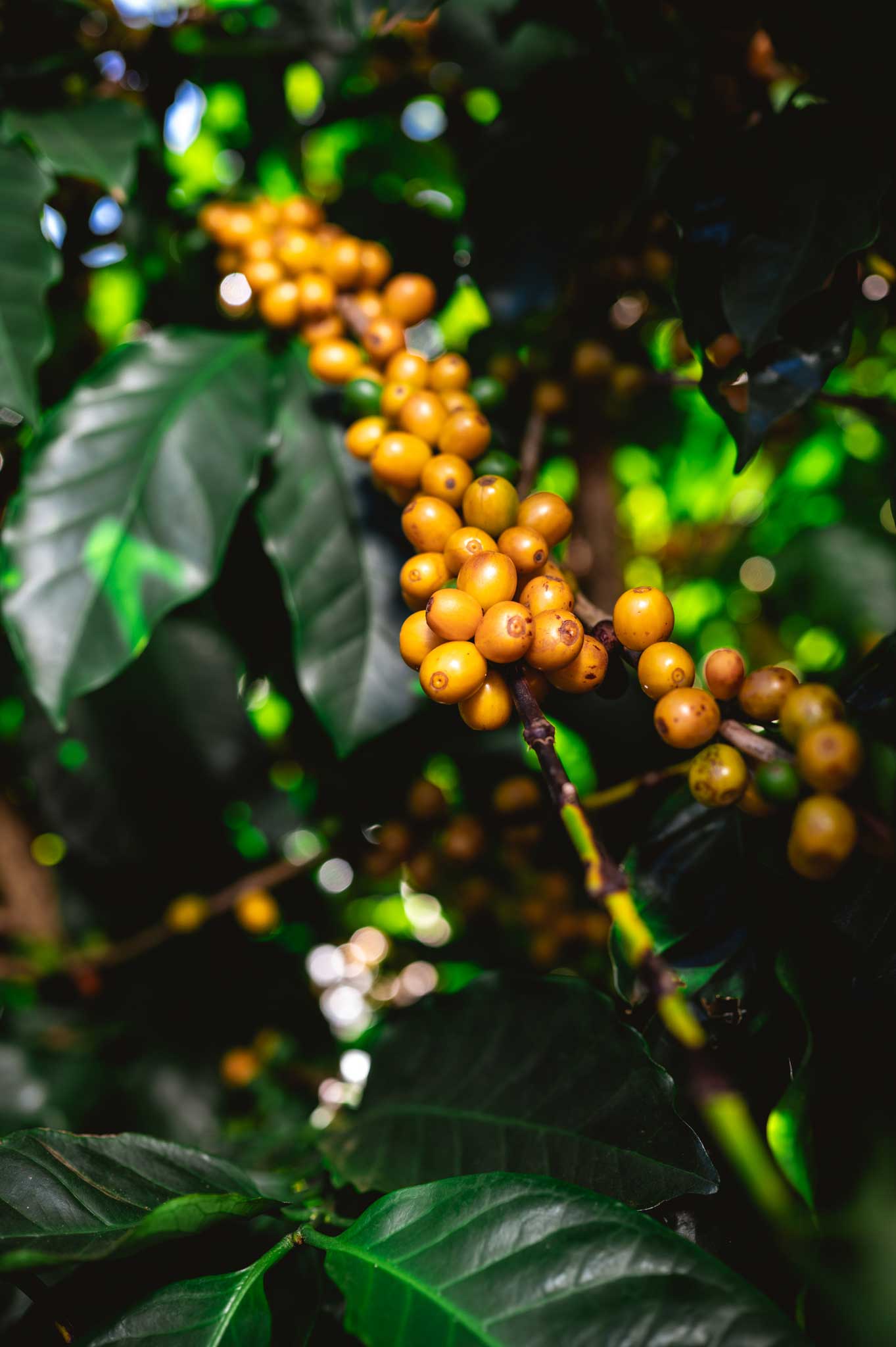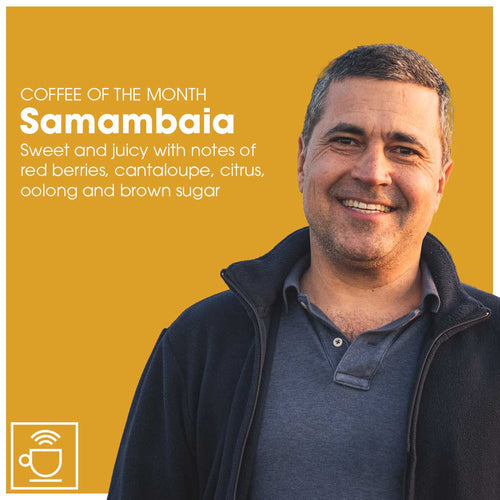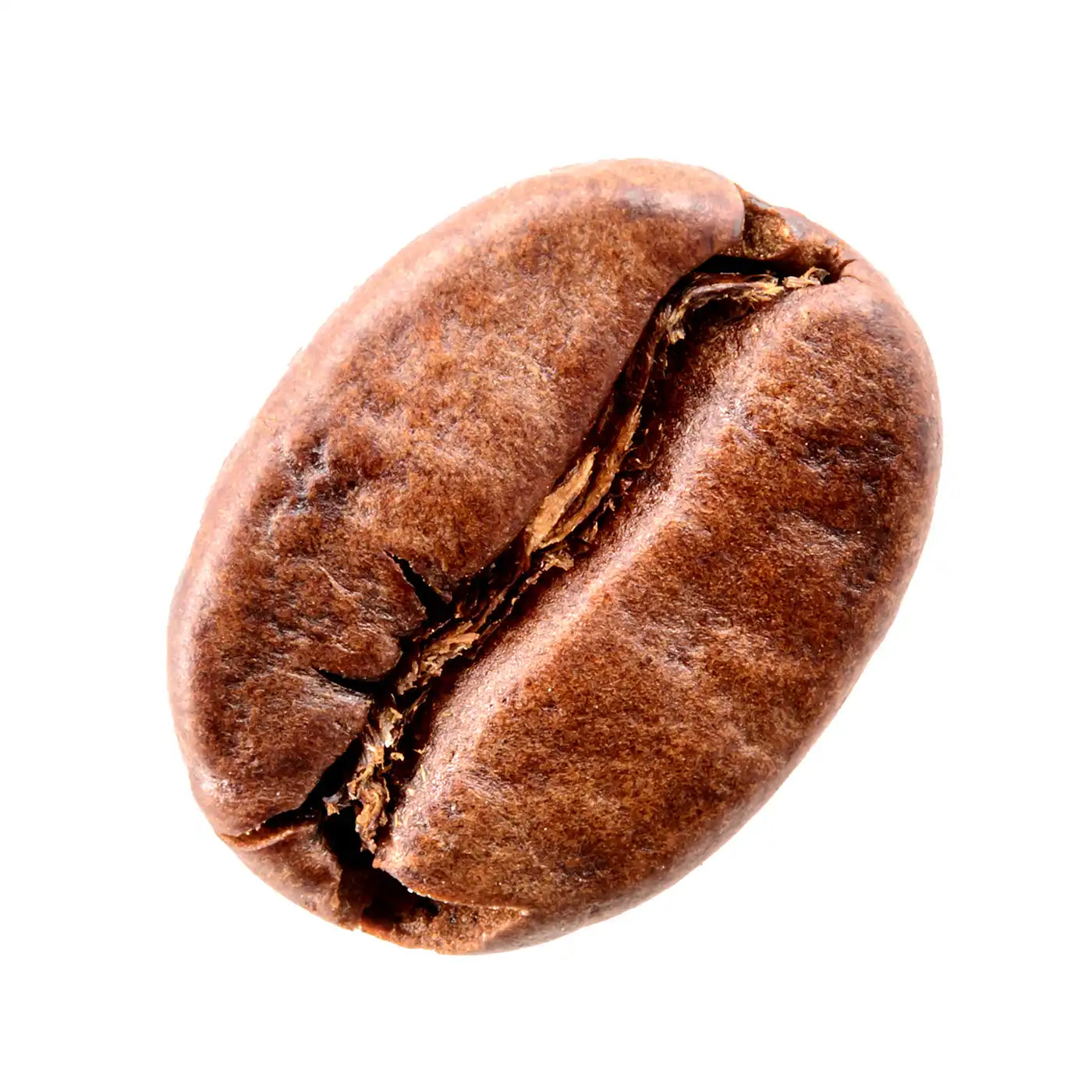
The price of coffee has just hit its highest point in 47 years
We have long advocated for coffee farmers to be paid more for their coffee. But there are challenges across the industry when such an increase occurs in just one year.
The problem is not that the price of coffee has increased by 70%. The problem is more that the price in the long term has not increased in 50 years and that this price increase has come in such a short time. The market has not had time to adjust.
Unfortunately, we can also expect that prices will fall again, so that coffee farmers around the world will once again have to operate at a loss.
So what's going on? And how will it affect coffee farmers, coffee roasters, and coffee drinkers?
Four reasons for the sudden price increase
-
Climate change is creating problems with heat, drought and unstable weather. This is creating uncertainty about next year's harvest, especially in Brazil and Vietnam, the world's largest producers of coffee. Many experts predict that next year's harvest will be historically poor.
- You may know that the EU has passed a new law to ensure that products (such as coffee) do not cause deforestation. The law - called the EUDR - was supposed to come into force in early 2025, but has been postponed by at least a year. The uncertainty about when and what consequences the upcoming EUDR regulation will have is causing the price to rise further. At the same time, there has been a hoarding of coffee ahead of the upcoming legislation, which means that coffee reserves are much lower than they have been before (26.4% lower than in 2023).
-
Uncertainty about access to prefinancing among producers, as well as increasing interest costs (our partners report interest rates on new loans of 15-16%)
- Since 2021, world coffee consumption has actually been higher than world coffee production. This is primarily due to the significant growth of Asian markets in particular. At the same time, climate change is reducing the usable coffee growing areas.
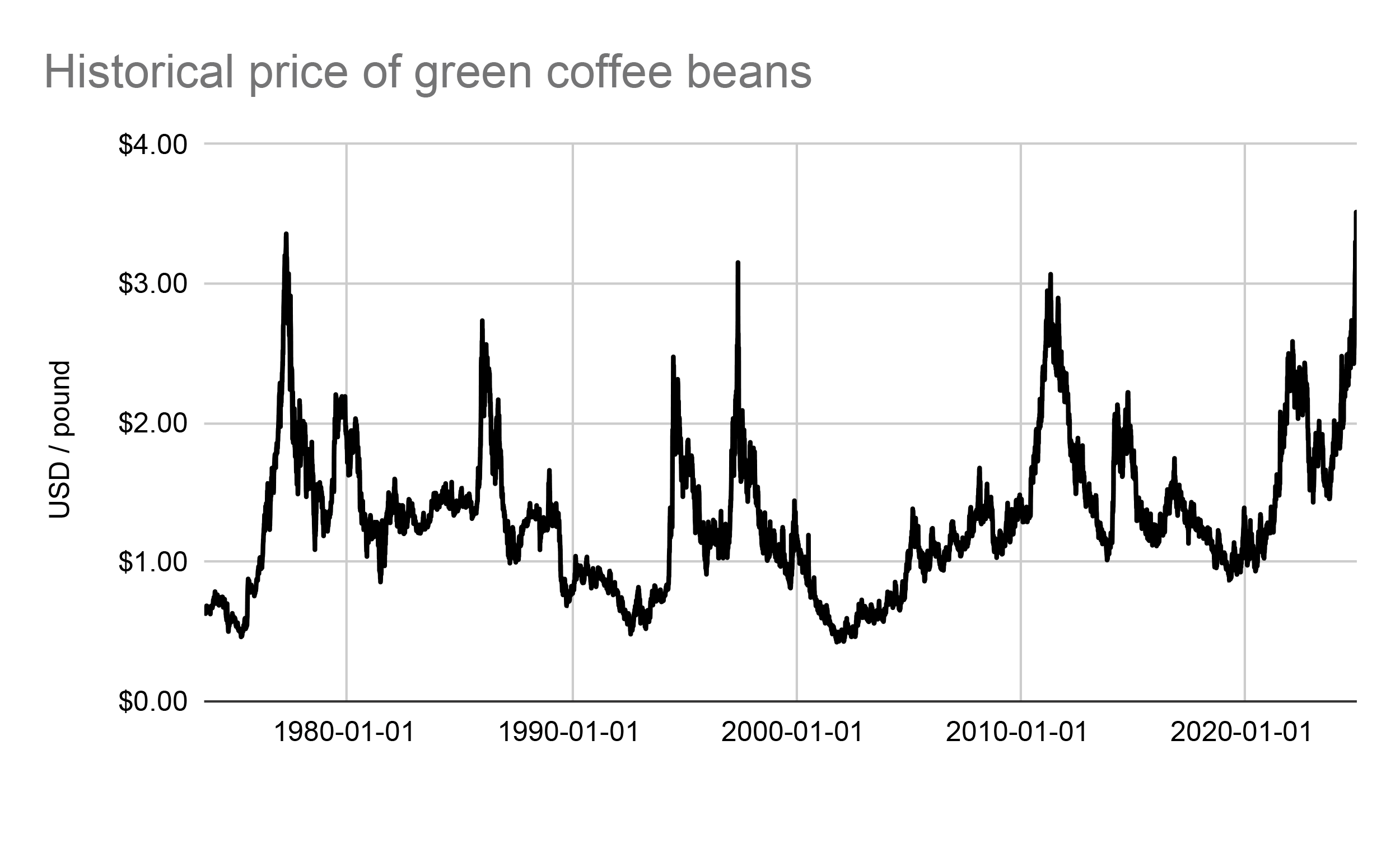
Consequences and future prospects
For those farmers who have not been affected by the poor harvest, the rising prices are a good thing. They earn more money than usual because they can get a higher price per kilo.
For those who have less coffee to sell due to a poor harvest, this means the status quo at best.
For small cooperatives, this means a significantly greater need for liquidity for prefinancing (the amount they must pay their farmers upfront has increased by 50-60% compared to 2023, according to our partner). The cooperatives are experiencing sky-high interest costs and are having more difficulty accessing new loans.

We must also remember that even though this price increase is high, it does not mean that coffee farmers will have a lot more money in their hands and that they will no longer live in poverty. In many cases, this increase will simply mean that their economy will come into balance with the other price developments, we have looked at all their costs.
Some will likely have a small surplus, but at the same time they have decades of backlogs that will not be offset by a single harvest at a higher price.
As you can see from the graph above, coffee prices have risen and fallen for short periods over time - but unfortunately there is no precedent where the price stayed up. On the contrary, history shows time and time again that the price always falls to its same low level again. We can of course hope that this is not the case this time, but that is probably unlikely.

What does this mean for CleverCoffee and our customers?
Since the prices we pay for coffee are always significantly above the market price, our purchase prices do not increase as significantly as if we bought the coffee at the market price. As it stands now, our purchase prices have increased by 30-40%, compared to market prices that have increased by 70-80%.
But a price increase of 40% is still noticeable. We generally operate with smaller volumes than most of our competitors, so we are also less able to absorb parts of the price increase in our margins. Therefore, we also expect that we will have to raise our prices in 2025 in line with the rest of the coffee industry.
However, there is a small possibility of minimizing price increases. Namely, by eliminating the need for our partners to borrow money for prefinancing. The coffee cooperatives that we work with are currently forced to take out loans with sky-high interest rates from financial companies and local banks.
If we can, in collaboration with our Danish partners and customers, make an advance payment for the coffees we are going to purchase, then the cooperatives' lower interest costs can mean a lower price for coffee. The farmers still get the same - the only ones we are bypassing with this model are the foreign banks, which are currently charging 15-16% interest. And that's if they are willing to lend at all.
But does anyone see a point in prepaying for some coffee in order to get it at a lower price? I'm very curious to hear your opinion.
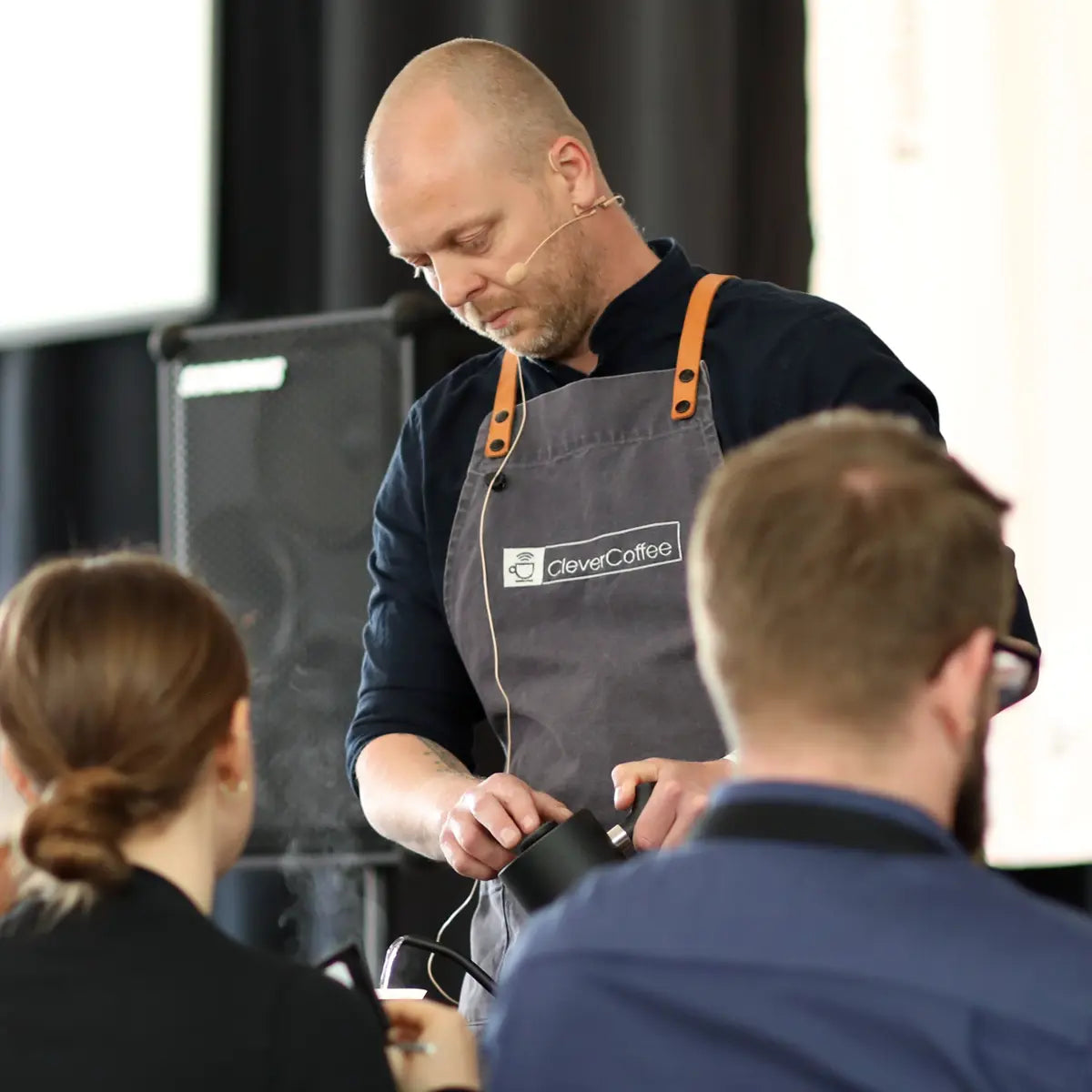
Written by Lindy Brogaard
Head of Coffee
CleverCoffee

